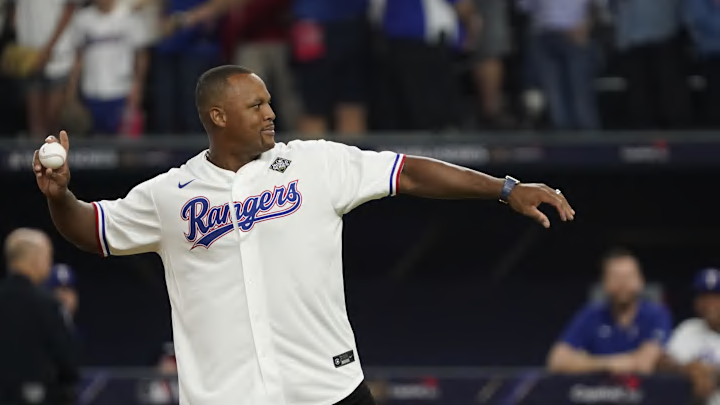Are Hall of Fame voters all reading from the same script?
Tuesday’s voting results for the 2024 Hall of Fame class certainly feed that narrative.
Voters gave 95.1 percent approval to the candidacy of Adrián Beltré. Of 285 ballots cast, only 19 did not contain Beltré’s name.
Let me be clear: if I had a vote, I’d have cast it for Beltré. He had 477 home runs and 3,166 base hits. He’s deservedly in. But 95.1 percent?
Two questions illustrate how domineering that number is, and also illustrate the absurdity of attaching that level of deification to Beltré’s name.
Q1. Aside from Beltre, name two other players who were elected with 95.1 percent support.
A1. Babe Ruth and Honus Wagner, both in the inaugural vote in 1936. So you’re saying Beltré is on a par with Ruth and Wagner?
Q2. In the history of the Hall of Fame, how many players have been elected with stronger support than Beltré?
A2. Just 17 of the 343 enshrinees got in with a level of backing greater than Beltré received. The long list of those who didn’t includes Willie Mays, Ted Williams, Stan Musial, Jackie Robinson, Christy Mathewson, Joe DiMaggio, Mickey Mantle and Cy Young. So you’re saying Beltré was better than those guys?
Or are modern voters merely looking at the same data set, listening to the same talking head drumbeat on TV and social media, and arriving at the same conclusion?
This unanimity of opinion is a relatively recent phenomenon. For the first half century of voting, only 10 players got 90 percent support. The decades between 1986 and 2010 added another 10 names to that roster.
But Beltré becomes the 11th player since 2011 (!) to have been elected with support exceeding 90 percent. Of the 10 highest vote totals ever recorded, four – including the top three – have come since just 2015.
Those top three, for the record, are Mariano Rivera at 100%, Derek Jeter at 99.7% and Ken Griffey Jr. at 99.3%.
When Ty Cobb got 98.2% of the vote in the inaugural 1936 election, he set a record that lasted more than a half century until Tom Seaver got 98.8% in 1992. Nolan Ryan matched Seaver’s record percentage in 1999, but the mark was not beaten until Griffey came along in 2016. He only held it three years, with Rivera attaining perfection in 2019.
Groupthink impacts the vote results at both the top and bottom ends. David Wright, an excellent third baseman for the New York Mets, debuted on this year's ballot with just 24 votes, only 6.4%. That barely reserves him a spot for next year’s vote. Wright was a seven-time All Star with a career .296 average. Mark Buerhle, a 214-game winner pitching mostly for Chicago, got just 32 votes. Jose Bautista, with 344 career homers, got just six and will not be eligible for future consideration by the writers.
This isn’t to argue that Wright, Buehrle or Bautista deserve immortality. But it does make one wonder why there isn’t at least some significant element of debate about their candidacies.
There were 2,696 votes cast in Tuesday’s election. Nearly three-quarters of all those votes went to just seven people: Beltré, Todd Helton, Joe Mauer, Billy Wagner, Gary Sheffield, Andruw Jones and Carlos Beltrán.
The argument can be made that this trend toward homogenized voting is a recent one. Between the 2014 and 2022 elections, and with the single exception of 2020, the percentage of all votes cast that went to the eventual top seven finishers held steady at between 61 and 65 percent.
Then, quite abruptly last year, possibly for the first time in Hall voting history, the percentage allocated to the top seven finishers leaped by 11 percentage points to 72 percent. Everyone, it seemed, settled on Scott Rolen, Todd Helton, Billy Wagner, Andruw Jones, Gary Sheffield, Carlos Beltran and Jeff Kent as the only plausible candidates. On Tuesday, the percentage of all votes going to the top seven rose again, this time to 72.44 percent.
It would take a thorough examination of the voters’ collective thought processes to determine why the 385 voted as they did, but the raw data suggests that a great mass of them have abandoned independent consideration in favor of groupthink. The only other possibility is that they have independently, and by their own processes, all arrived at essentially the same conclusions.
What are the odds of that happening?
True Exit Velocity: The best MLB players at really making hard contact in 2023 (calltothepen.com)
